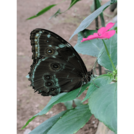
Students will listen to the text and explore the garden to connect details from the text to their surroundings.
- Subject:
- English Language Arts
- Material Type:
- Lesson Plan
- Author:
- Out Teach
- Date Added:
- 07/22/2021

Students will listen to the text and explore the garden to connect details from the text to their surroundings.
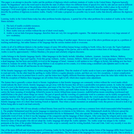
This paper speaks about Arabic and the problem of diglossia. In the paper, the author discusses the place of Arabic in the world of languages. The author also speaks about some of the aspects that make Arabic a difficult language to learn for speakers of Indo-European languages and discusses the problem of diglossia in modern Arabic. Ultimately, he makes a proposal on a possible way to teach Arabic that directly addresses the diglossia issue.
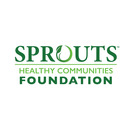
In this engaging unit, students will design and plant a square-foot garden that will be their central tool.Through the growing season, they will explore nutrition content in their everyday lives and see how it relates to what they are growing.

Please explore at least three of the resources on this Choice Board. When you are finished, you should be able to answer the following three questions:Where on Earth is KAUST?Who are three community helpers in my community?What kinds of things can I do to help my community?

This lesson has students practice ways to be more understanding and reflect on the effects of empathetic listening.
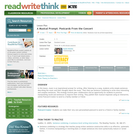
Students won't miss a beat in this musical lesson that combines listening with personal response on a postcard.
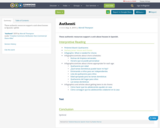
These authentic resources support a unit about houses in Spanish. vgfrbfz
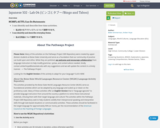
NCSSFL-ACTFL Can-Do Statements:I can identify and describe free-time activities. 私は色々なアクティビティについて説明できます。I can identify and describe everyday items.私は日用品について説明できます。
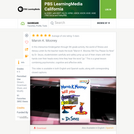
In this interactive Kindergarten through 5th grade activity, the world of fitness and literacy unite! As the teacher reads the book Marvin K. Mooney Will You Please Go Nowíń by Dr. Seuss, studentslisten carefully and safely jump up out of their chairs with their hands over their heads every time they hear the word go.íń This is a great lesson combining psychomotor, cognitive and affective skills.

This lesson provides teachers with support for using text-dependent questions to help students derive big ideas and key understandings while developing vocabulary from the biographical text, Boss of the Plains. This biography relates the life of John Batterson Stetson as a hatting apprentice until he was diagnosed with tuberculosis and decided to explore the American West. During his time with the people of the West, he invents a better hat, nicknamed "Boss of the Plains," - the first real cowboy hat.

This unit explores the various ways information and ideas about climate change are presented through a variety of media. This includes the evaluation of social media posts, research into climate change issues, and an exploration of contemporary art and artists. This was designed and taught in an honors 9th grade English Language Arts Classroom by Dr. Tavia Quaid in response to student interest in climate change and to reinforce key information literacy skills.
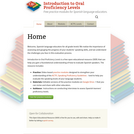
Free practice modules for Spanish language educators
Introduction to Oral Proficiency Levels is a free open educational resource that can help Spanish teachers gain a foundational understanding of how to evaluate Spanish speakers. The resource includes 17 video-based practice modules designed to strengthen your understanding of the ACTFL Speaking Proficiency Guidelines and to help you evaluate the speaking levels of your language students.

This is a lesson used in a Theater 100 Intro to Theater classat West Los Angeles College in 2022. Students were part of an open-pedagogy process that connected them with stage artists of color whom they interviewed about their careers in stage design, writing and directing.Artists were contacted directly and volunteered to be part of the project. Most were delighted to speak with students aboout their careers.
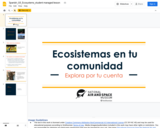
This explore on your own student managed lesson explores ecosystems and how living things are interconnected and is presented in Spanish

Mother, father, sister, brother, aunt, and uncle are just a few words you will learning about in this seminar. You will be able to identify various family members in your family as well as in other people's families by using possessive adjectives as well. Combine this new knowledge with previously reviewed adjectives and verbs to begin telling more and more about what others are like and what they do.ACTFL StandardsCommunication: Interpersonal Communication, Presentational CommunicationComparisons: Cultural ComparisonsLearning TargetI can say or write something about the members of my family and ask about someone’s family.Habits of MindApplying past knowledge to new situationsCritical Thinking SkillInternalize

This is a lesson used in a Theater 100 Intro to Theater classat West Los Angeles College in 2022. Students were part of an open-pedagogy process that connected them with stage artists of color whom they interviewed about their careers in stage design, writing and directing.Artists were contacted directly and volunteered to be part of the project. Most were delighted to speak with students aboout their careers.

Conversations host Harry Kreisler speaks with William A. Rusher, former publisher of the "National Review" about the conservative movement. (54 min)

The speaking activity is sutiable for 10 English learners of 10-12 years old but may be used with adults too.
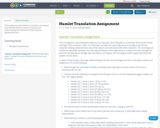
This assignment asks students to translate a monologue from Hamlet within its context in the play and understanding the motivations of the character speaking the lines.

Writing Commons is an encyclopedia for writers, speakers, and knowledge workers. Since 2008, we have published original articles on topics of interest to writers, speakers, and knowledge workers. Over 11 million students and teachers worldwide use Writing Commons for help with their college-level coursework in academic, workplace writing, STEM writing. Writing Commons serves as the required writing textbook for students in composition, professional and technical writing, workplace writing, business writing, fiction writing, and poetry writing courses. Beyond the classroom, Writing Commons is the go to source for professionals in workplace writing settings.